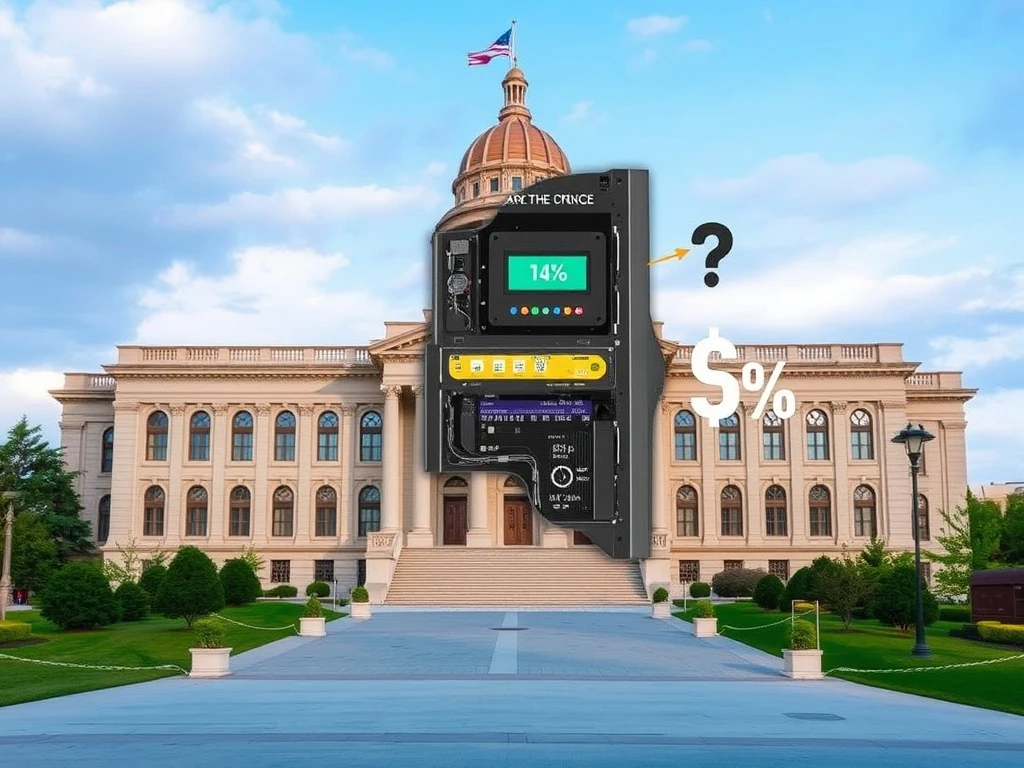Urgent: New York Proposes Staggering Crypto Mining Energy Tax

The cryptocurrency industry faces a significant challenge in New York. State Senator Liz Krueger has introduced a new bill. This legislation proposes a tiered crypto mining tax New York on energy consumption. This move could reshape the landscape for New York crypto mining operations. Investors and operators are closely watching these developments.
Understanding the New York Crypto Mining Regulation
On Wednesday, Senator Krueger unveiled the legislative proposal. It targets companies operating crypto mining facilities within the state. The bill aims to impose excise taxes on their energy use. This initiative is not the first of its kind. However, it introduces a specific, tiered tax system. Importantly, the proposal includes a key exemption. Miners utilizing 100% renewable energy sources will avoid these charges. This aligns with previous state policies. Governor Kathy Hochul signed a two-year mining ban moratorium in 2022. That moratorium allowed clean energy miners to operate. It officially expired in 2024.
The proposed tax structure details varying charges. It introduces a tiered system based on annual kilowatt-hour (kWh) consumption:
- 2.25 million kWh or less: No charge.
- 2.26 million to 5 million kWh: 2 cents per kWh.
- 5 million to 10 million kWh: 3 cents per kWh.
- 10 million to 20 million kWh: 4 cents per kWh.
- Over 20 million kWh: 5 cents per kWh.
This system aims to specifically target larger energy consumers. The bill’s introduction follows a period of debate. New York has actively sought to balance economic development with environmental concerns. This new crypto mining regulation reflects ongoing efforts. It seeks to manage the environmental footprint of large-scale operations.
The Impact of Bitcoin Mining Energy Tax on Profitability
Crypto mining is a fiercely competitive business. Operations often run on very narrow profit margins. Imposing an energy tax directly impacts these financials. It further erodes already thin margins for many companies. This added expense could drive miners reliant on grid electricity out of the Empire State. They may seek jurisdictions without such costs. Electricity cost remains a critical factor. It can determine success or failure in the mining industry.
Companies with substantial resources often gain an advantage. They can secure land and build facilities. These operations develop infrastructure to harness renewable energy in remote locations. This strategy mitigates variable energy costs crypto mining. It gives them a significant competitive edge. Smaller miners, or large players tapping into retail grid electricity, face higher, less predictable expenses. This creates a challenging environment for many participants.
Rising Energy Costs and Bitcoin Mining Profitability
The median cost of mining a single Bitcoin (BTC) has surged. It crossed $70,000 in Q2 2025. This increase comes amid rising mining difficulty. The network hashrate also contributes to higher costs, according to TheMinerMag. Such trends highlight the financial pressures on miners. Recent financial reports confirm these challenges. Energy prices in Q1 2025 reached about $0.08 per kWh. This significantly impacted companies like TeraWulf. TeraWulf operates a mining facility in upstate New York. Doubling costs relative to revenue caused them a substantial loss. The company recorded a $61.4 million loss during that period. This demonstrates the vulnerability of miners to fluctuating energy costs crypto mining.
First page of the mining energy excise tax bill introduced by New York State Sen. Liz Krueger. Source: New York SenateFuture Outlook for New York Crypto Mining
This proposed Bitcoin mining energy tax creates uncertainty. It compels mining companies to re-evaluate their operational strategies. They must consider the long-term viability of their New York facilities. The state aims to manage its energy resources. However, this legislation could inadvertently push innovation and investment elsewhere. The debate over crypto mining’s energy footprint continues globally. New York’s approach could set a precedent. Other states might consider similar measures. Therefore, industry stakeholders watch these developments closely. The outcome will influence the future of digital asset mining. It will also shape the regulatory environment for years to come.








